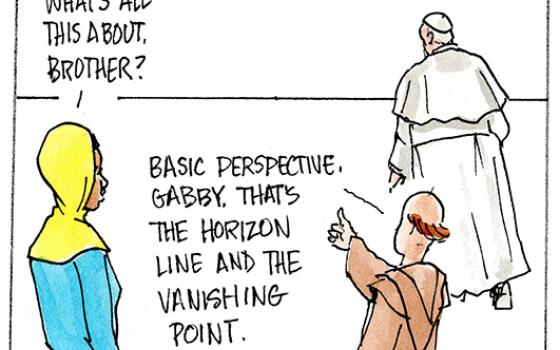The chairman of the U.S. bishops' Committee on International Justice and Peace called on the White House's national security adviser to pursue negotiations with Iran on its nuclear research to head off the possibility of war.
Bishop Richard E. Pates of Des Moines, Iowa, called for "bold steps" to be considered to "to counter this unfortunate and continually rising ride of aggressive posturing between our own nation and Iran" in a letter Tuesday to Thomas E. Donilon.
Citing Pope Benedict XVI's insistence on the need for dialogue and joint solutions to the Iranian situation, Pates urged Donilon to undertake diplomacy rather than a preventive military strike that would likely lead to broader armed conflict in the Middle East.
"Preventing military action is paramount," the bishop wrote. "A negotiated solution could provide a framework for resolving tensions.
Pates also cited paragraph 501 of the Compendium of the Social Doctrine of the Church, which explains that "engaging in preventive war without clear proof that an attack is imminent cannot fail to raise serious moral and juridical questions."
"A peaceful resolution will require direct, sustained negotiations over a considerable period of time. It is the opinion of our committee that direct talks between the United States and Iran must begin soon, so as to prevent further escalation," the letter said.
The text of his letter was released by the bishops' Office of Media Relations on Wednesday.
Pates explained that any agreement with Iran must affirm its right to enrich uranium for peaceful purposes in exchange for Iran's commitment to limit such research "convincingly short of weapons-grade potential" and must be confirmed by verifiable inspections.
He also said credible assurances must be provided to Iran by the international community, and the U.S. specifically, that no military action will be taken as long as Iran complies with treaty obligations.
Finally, he said, Iran should be assured of access to international nuclear fuel-cycle services at market rates.
"A diplomatic solution is preferable to military action which could have unpredictable and dramatic repercussions for the region. Such a solution would be highly advantageous to all and should be pursued with good faith and vigor," the letter said.


